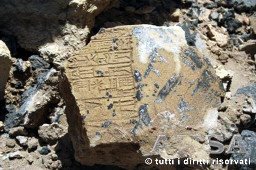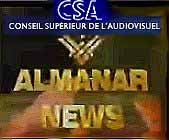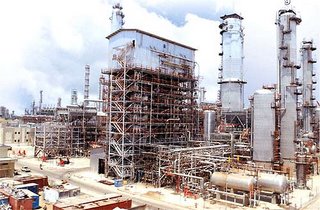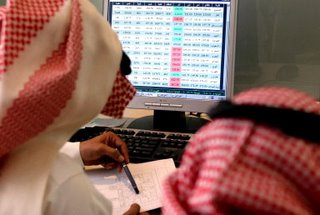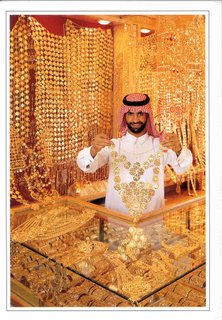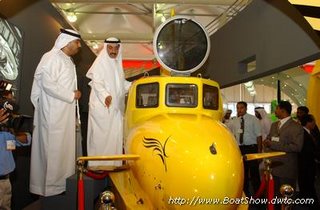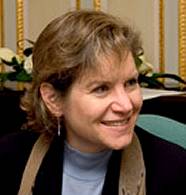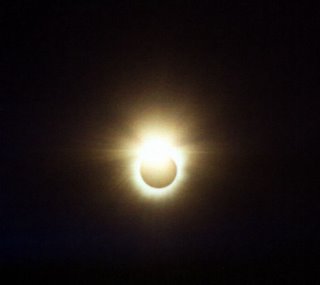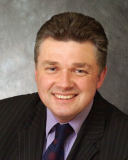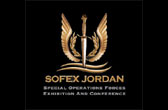China Bites at the Markets of the Arab Maghreb
Samir Sobh Al-Hayat - 24/02/06//
The spider web woven by the Chinese economy over the past years has extended to the Arab Maghreb region, where Chinese companies have started to establish in a calculated and steady manner. So far, Algeria and Morocco are the two most targeted countries by the Asian giant.
Backed by both an active government and an increasingly growing economy, the Chinese companies

were able to penetrate the markets of the Arab Maghreb countries, completing therewith their selective entrance of the African markets. The political trend that previously governed the trade exchanges and the economic relations with all the countries of the world gave way to the pragmatic economic trend. Based on this current reality, one can note that the Chinese private sector, which coordinates its steps according to the public strategy put forth by the government in Beijing, can now win the considerable agreements worldwide.
In this respect, it is worth noting that the continent and the Arab Maghreb region were not kept at bay of this economic invasion. In addition to being endowed with an advanced know-how, the products, which all bear the "Made in China" tag, will no longer stake on low price but will start, henceforth, to make quality their top priority. The Chinese have proven that they are the best when it comes to achieving projects at an unprecedented pace.
One of the most striking examples thereof is achieving the Algerian army hotel - both in construction and equipment - in less than six months. It is a five-star hotel located at Bani Msous region, one of the capital's entries. In Algeria, as in Morocco, especially when it comes to construction and public works, the achievements of the Chinese companies have become a reference. Thus, they have become an indivisible part of most bids undertaken in the countries of the Arab Maghreb.
In this case, is it possible to say that it is hard from now on to outperform the Chinese in the North Africa region? And subsequently to dub them as economic invaders?
With respect to the first part of the question, the Moroccan employers and industrialists confirm that it is too soon to judge. However, on the other hand, we should admit that, with respect to the most important listed offers, the Chinese companies are forever present in the competition arena, except in the fields of arms and civil aviation. As for the second part, the Chinese Ambassador to Rabat, Cheng Tao, responds by rebuffing the tag "economic invaders," which, according to him, does not reflect the reality at all. The reason is that trade between the two countries is developing bilaterally, bearing in mind that the Chinese companies were able to obtain these contracts because they submitted the best offers with respect to cost, quality, and speed of execution.
In Morocco, a noticeable presence…
From Casablanca to Marrakech to the rural areas on top of the Atlas Mountains, the Moroccans have lately and increasingly been coming across a large number of Chinese in their regions, at a time when their products are invading all the markets of the kingdom. Despite this reality, they are far from representing a threat to the Moroccan economy, at least now. China still ranks 8th on the list of exporters to Morocco. Moreover, the import therefrom did not exceed 5.5% of the total import volume for 2005. Thus, if its exports to Morocco have recorded a 30% increase until the beginning of October 2005 compared to the same period in 2004, the exports of the Kingdom, however, have made a giant leap that reached 121%. The purchased goods from China mainly included radio and TV sets (worth 704 million Dirham, the dollar is equivalent to 9.50 Dirham), tea (632 million Dirham), in addition to various tools and appliances (608 million). This has led the Chinese Ambassador in Morocco to talk about a real disequilibrium in the trade balance.
On the other hand, China has decided to allot a subsidy to import phosphate and cobalt minerals from the Moroccan mines. In return, the number of Chinese tourists flocking to Morocco is still very modest. As for direct foreign investments, the Asian giant did not ascribe enough importance to opportunities provided by Morocco in this field, although China has spent more than 4.5 billion dollars on foreign investments during the first 9 months of last year.
Although the Chinese had modestly headed towards the Moroccan markets through ordinary products, such as automobile parts and plastic and mechanic tools, as well as motorbikes, air conditioners, and sanitary ware, they are proving to be aggressive when it comes to major contracts. Based on this diagnosis, a manager at "Bouygues-Maroc," one of the branches of the giant French group specialized in construction and public works, which built Hassan II mosque in Casablanca - one of the most important landmarks in Morocco - admits that the Chinese have really started to complicate things for them through serious competition in the infrastructure field.
In this respect, it is worth noting that in October 2005, the Chinese were able to win a major contract by an agreement with the "Office National des Chemins de Fer du Maroc" to build a tunnel linking the cities of Sidi Kacem and Meknès. Sources reveal, in this respect, that the Chinese noticeably cut down prices to fend off their European competitors at any cost. According to the Moroccan sources in the Ministry of Supplies, this Chinese insistence to accept to implement the project at a lower price than the actual cost stems from a wager on acquiring the infrastructure market in the future, to which the government allocated 30 billion Dirham in the next 8 years. These sources also confirmed that the Chinese government sought to fund the building of three dams and three closed pools with all their supplies. This will provide these Chinese companies in Morocco with major opportunities. The Moroccan economic circles anticipate "a rush" of these companies in the field of popular residences construction, which is a project launched by King Mohamed VI to build thousands of units over the next five years.
But the principal goal of the Chinese lies in monitoring the repercussions of the free trade exchange agreement signed between Morocco and the US. Beijing never suppressed its expectations thereof, especially that due to the partnership agreement with the European Union, with the Arab countries in the framework of Agadir agreement, and now with the US, Morocco can now provide Chinese companies with many promising opportunities that they will subsequently invest to double their exports.
With Algeria, historical relations….
If the economic relations between China and Morocco practically saw the light in the early 80's, the friendship relations between Beijing and Algeria go back to 1964, i.e. two years after proclaiming the independence. For more than 20 years, the Chinese companies have been actively operating in the Algerian markets. They have been present in the framework of the cooperation agreements signed between the two countries with respect to agricultural projects to build dams and residences. The second half of the 90's has witnessed a major comeback of the Chinese companies through building a ceramic factory in Guelma, carrying out 55 thousand residences, and completing the construction works of the Oran (Wahran) governmental hospital, in addition to projects related to the energy field. Last December, "China Petroleum Engineering Construction" signed a contract with Algerian company "SONATRACH" worth 600 million dollars to build properties for the production and treatment of oil fields in Tuat area in the heart of the Big Sahara. The Chinese company sought to complete the work within only 18 months, at a time when rival companies submitted offers committing therein to complete the work in 24 months. On the other hand, Algeria handed the China Petroleum and Chemical Corporation (SINOPEC) another contract worth 525 million dollars to develop Zarzatin oil field, South of the country. It was also agreed that Algeria will export nearly 350 million dollars of crude oil to China through its national company. The Chinese did not cease to win the most substantial contracts in Algeria, including the project of expanding Hawari Boumediene international airport.
After reinforcing their positions in the infrastructure, oil, and residential construction markets, the Chinese companies are endeavoring to be present on all economic fronts in Algeria, especially after President Abdel Aziz Bouteflika announced that he allotted 55 billion dollars over the next five years to complete all infrastructure projects needed by the country. The Chinese, who are now more confident in their potential and performance of their companies than ever, are hoping to elicit the most sizeable share on the level of inviting offers. Thus, they are wagering on the quality and efficiency of the projects they carried out at an unprecedented pace and at preferential prices. This will tempt the Algerian authoritities to resort to their services once again, at a time when it is hard for their competitors, the Europeans in general and the French in particular, to provide the same facts, tools, and conditions. The Chinese are also wagering on the historical friendship with Algeria, a fact that has proven to be efficient in the competitions during the past years.
*Mr. Samir Sobh is an Economic Researcher.
